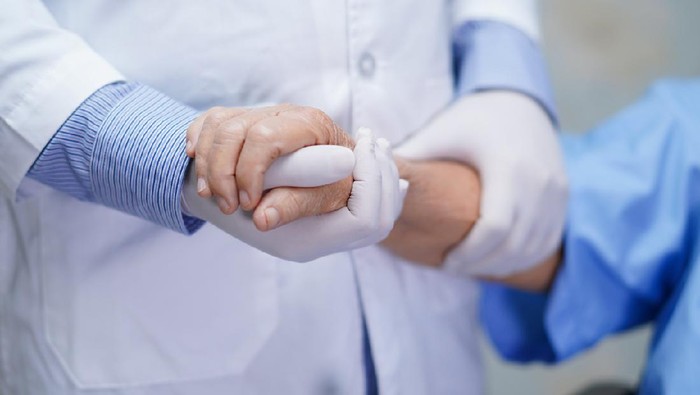In the field of dentistry, orthodontic equipment is often used in the handling of several cases of injury. The equipment is mostly sharp which can cause mouth tissue injury. For this reason, oral ulcers are often associated with sharp orthodontic devices or wires, which can irritate the oral mucosa. Like epithelial cells in the mouth that are characterized by irregular ulcerations or ulcus around erythema. It can cause an unpleasant and painful sensation. Some studies found that orthodontic equipment can cause lesions in the oral mucosa, about 40% in forms of erosion and 45% in ulceration.
The purpose of this study is to analyze the biocompatibility and potential of signaling cells in the mouth for healing oral ulcers in vitro. The approach of this research is to utilize human somatic gingival cell culture then exposed with metabolites as a medicinal signal. This is important and useful because traumatic mouth ulcers are a major problem during fixed orthodontic treatment that has not yet been resolved.
Signaling cell metabolite is often considered a waste even though it contains many various growth factors including micromolecules and macromolecules that can accelerate the healing of oral ulcers.
Metabolite from signaling cell is obtained by mixing between 10 mL MSCM and 2% sodium carboxymethyl cellulose. 3- (4,5-dimethylthiazol-2-yl) -2,5-diphenyltetrazolium bromide (MTT). Furthermore, the safety test was carried out by exposing it to human gingival somatic cell culture. Cell viability was measured by infrared spectroscopy to determine the functional structure and composition of the MSCM, an analysis of dissipative light energy was also carried out with the aim of increasing the proliferation of human-based oral somatic cells. It turns out that MSCM can accelerate cell growth after 12 hours in vitro. It is possible because MSCM contains carbon, potassium and derivative chemical bonds but does not have or contain heavy metals.
The conclusion obtained from these results is that oral-based MSCM has biocompatible ability and potential to accelerate the healing of oral ulcers in vitro. It will be useful in daily clinical practice in the treatment of traumatic mouth ulcers.
Author: Alexander Patera Nugraha, Purwati, Helen Susilowati, Eryk Hendrianto, Deya Karsari, Nora Ertanti,Aristika Dinaryanti, Igo SyaifulmIhsan, Ida Bagus Narmada, Diah Savitri Ernawati and Fedik Abdul Rantam. 2019.
Article link: Medicinal Signaling Cells Metabolite Oral Based as a Potential Biocompatible Biomaterial Accelerating Oral Ulcer Healing ( In Vitro Study). Eur J Dent. 2019 Jul; 13(3): 432–436.Published online 2019 Dec 3. doi: 10.1055/s-0039-1693923





